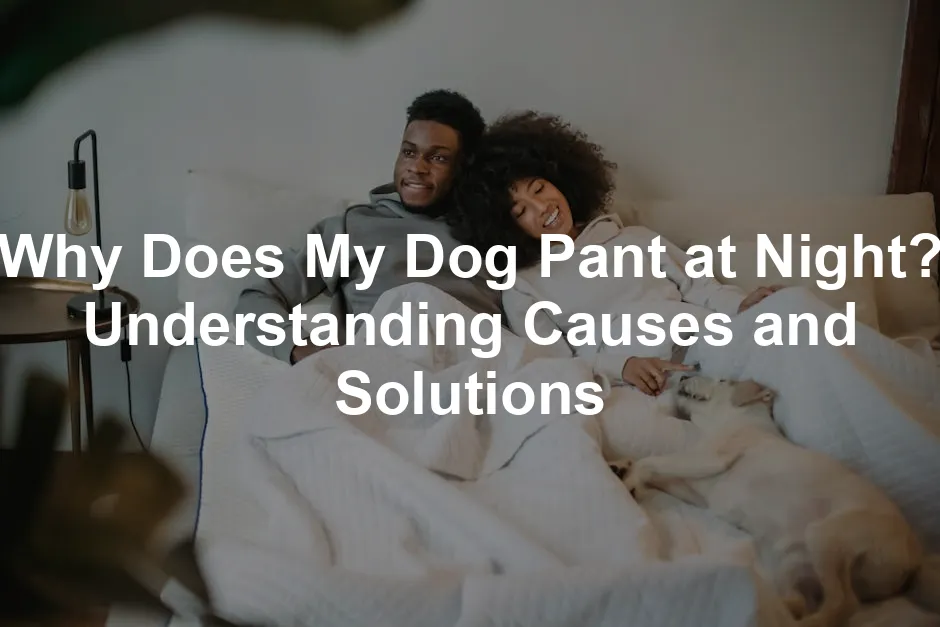Introduction
In the stillness of the night, your furry friend may suddenly begin to pant, leaving you puzzled and concerned. While panting is a normal behavior for dogs, excessive nighttime panting can be a sign of something more serious. This can feel like a mystery novel where the culprit is hiding in plain sight, right in your living room!
So, what’s the deal with your dog’s nighttime panting? Dogs pant for various reasons, primarily to regulate their body temperature. But what happens when they start panting at night, especially when there’s no clear reason for it? It’s enough to make any pet parent’s heart race faster than the panting pup’s!
In this comprehensive guide, we’ll uncover the reasons behind your dog’s nighttime panting, explore potential health issues, and provide tips on when to seek veterinary care. We’ll look at the common reasons for panting, such as anxiety, heat, and health conditions. Understanding these factors can help you determine whether you need to take action or if it’s just a case of “the dog days of night.”
Grab a cup of tea, and let’s unravel this canine mystery together! After all, your dog depends on you to keep them comfortable and healthy. You’ll soon be equipped with the knowledge to distinguish between normal and concerning panting, ensuring peaceful nights for both you and your furry companion.

Summary
In this article, we will explore the various reasons why dogs pant at night and when you should be concerned. We will cover common causes such as heatstroke, Cushing’s disease, heart disease, respiratory issues, and anxiety. Additionally, we’ll discuss the normal panting behavior in dogs and how to differentiate between regular panting and concerning symptoms.
By the end of this guide, you’ll have a better understanding of your dog’s nighttime panting and the steps to take to ensure their well-being. You’ll learn to recognize when a quick trip to the vet is necessary and when to simply offer a comforting pat and a cool drink. It’s all about balancing your dog’s comfort with your peace of mind.
So, buckle up as we take a deep dive into the world of dog panting! You’ll soon be a panting expert, ready to tackle any nighttime mystery your pooch presents. Whether it’s a case of the midnight munchies or something more serious, you’ll be prepared to keep those tails wagging and spirits high!
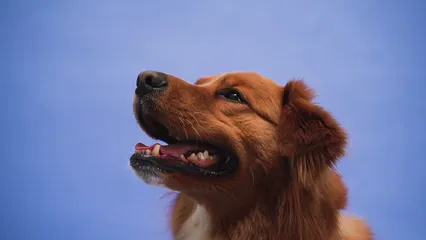
Common Causes of Nighttime Panting
1. Cushing’s Disease
Cushing’s disease is a sneaky little rascal! It occurs when your dog’s body produces too much cortisol, the stress hormone. This condition is especially common in senior dogs. So, what should you look for? Increased thirst, frequent urination, ravenous hunger, and hair loss might pop up. You may even notice a pot-bellied appearance that wasn’t there before.
But how does this connect to panting? Well, excess cortisol can disrupt normal body functions. This disruption can lead to excessive panting, particularly at night. If your dog seems a bit more “pant-tastic” than usual, it could be worth a visit to the vet. To help manage your dog’s health, consider using a PetFusion Ultimate Dog Bed to ensure your pup gets the quality rest they deserve!
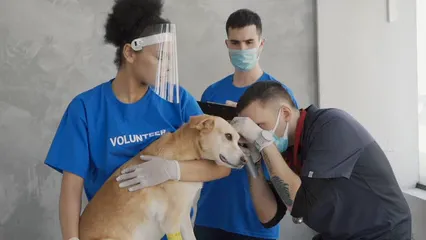
2. Heart Disease
Heart disease is another culprit lurking in the shadows. Your dog relies on a healthy heart to keep oxygen flowing through their body. If heart function declines, panting can become a common response. You may notice your furry friend panting excessively after just a short walk or feeling lethargic.
Signs to watch for include coughing, an unusual level of fatigue, or even fainting spells. If your dog is panting heavily after minimal exertion, it’s time to pick up the phone and schedule a veterinary appointment. Better safe than sorry when it comes to their heart! To keep your dog’s heart healthy, consider switching to Blue Buffalo Life Protection Formula Dog Food.

3. Respiratory Issues
Panting might be your dog’s way of saying, “I can’t catch my breath!” Respiratory problems can arise from various conditions like asthma, pneumonia, or laryngeal paralysis. If your dog is struggling to breathe, you might notice heavy panting, a blue-tinged tongue, or labored breathing.
These symptoms indicate that your pooch isn’t getting enough oxygen. If you see these signs, don’t wait! A trip to the vet is essential to diagnose and treat any underlying respiratory issues. For added peace of mind, consider having a Dog GPS Tracker to keep tabs on your furry friend’s whereabouts!
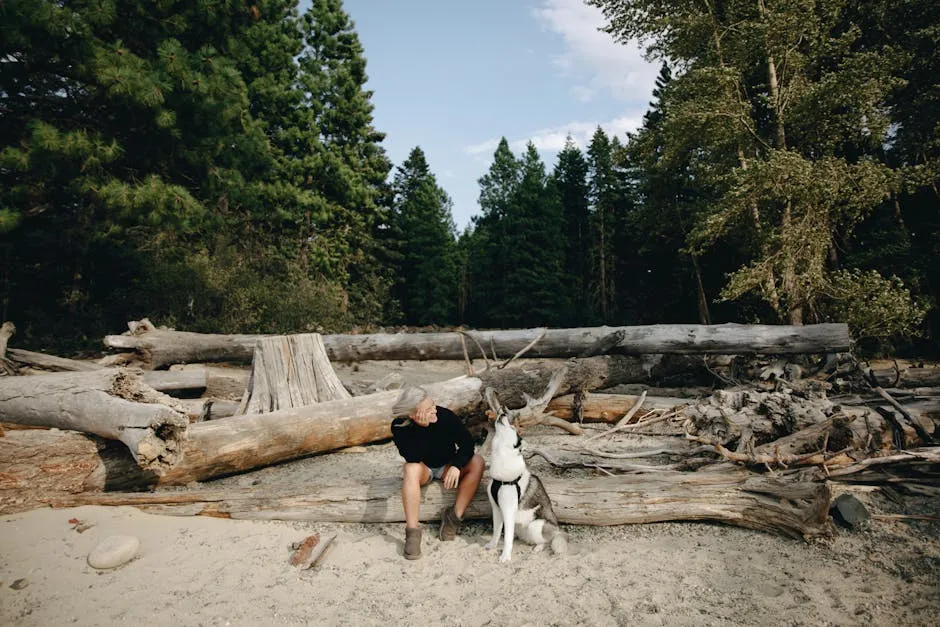
4. Heatstroke
When temperatures soar, your dog is at risk of heatstroke. This serious condition can quickly escalate and may even be fatal. You might notice heavy panting, excessive drooling, or lethargy as warning signs.
Always keep your dog hydrated and in a cool environment to prevent heatstroke. If you suspect your furry friend is overheating, take immediate action. Move them to a shaded area, offer water, and contact your veterinarian right away. To help keep your dog cool, consider getting a Dog Cooling Mat for those hot summer nights!
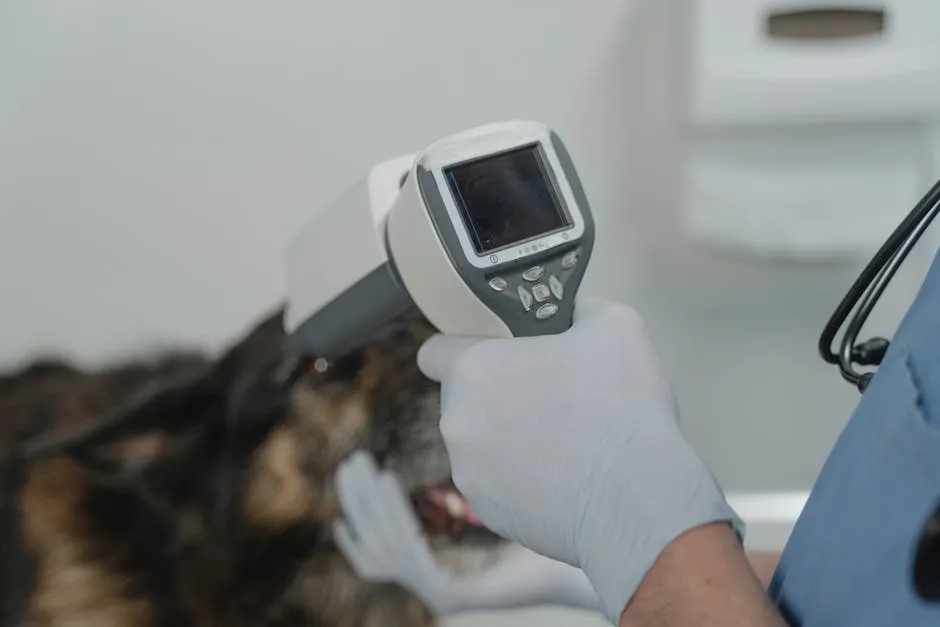
5. Anxiety and Stress
Ah, anxiety—the sneaky bandit that can rob your dog of a good night’s sleep. It can arise from various factors, including loud noises, changes in routine, or separation anxiety. If your dog pants at night, it might be a reaction to stress.
Look for triggers in your dog’s environment. Is there a thunderstorm rumbling outside? Maybe a neighbor’s fireworks show? Creating a safe space for your dog during stressful events can help. Consider calming aids and training techniques to ease their anxiety. A ThunderShirt Classic Dog Anxiety Jacket can provide that extra comfort during those tense moments!
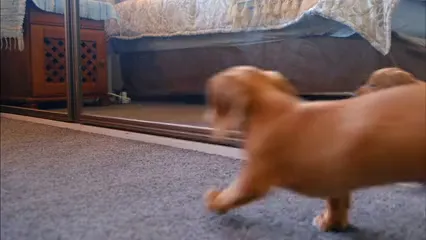
6. Environmental Factors
Have you checked the thermostat? High nighttime temperatures can cause discomfort for your dog, leading to nighttime panting. Allergies to pollen or dust can also disrupt their rest.
Ensure your dog’s sleeping area is cool and comfortable. Use fans or air conditioning to maintain a pleasant environment. If allergies are suspected, consult your vet for potential treatments to alleviate your dog’s symptoms. A PetSafe Healthy Pet Water Station can help keep your pup hydrated and happy!
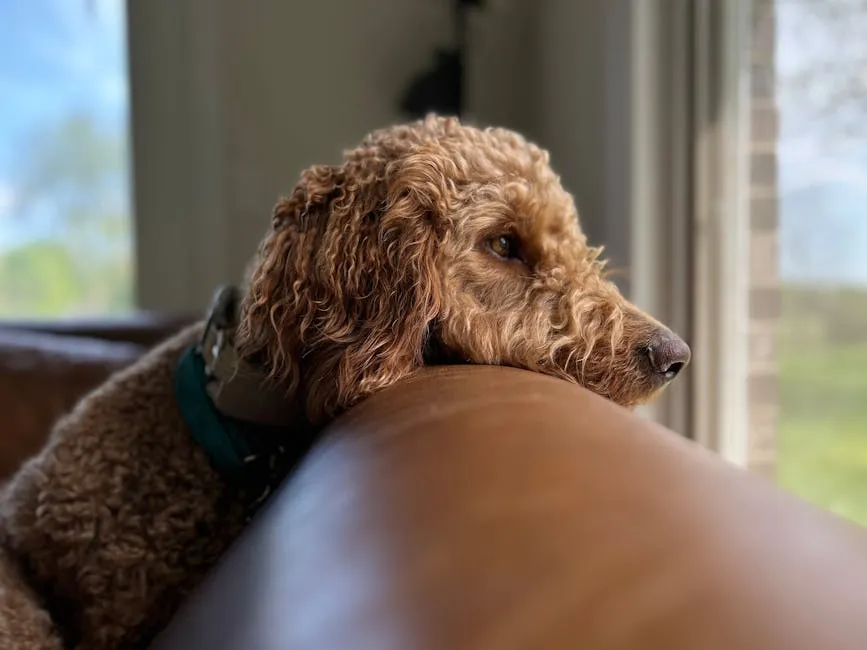
7. Pain or Discomfort
Dogs don’t always vocalize their pain as humans do. Instead, they may resort to panting as a way to signal distress. Various conditions, including arthritis or internal injuries, can cause discomfort.
Watch for other signs of pain—limping, whining, or excessive grooming of a specific area. If your dog is restless and panting, consider a veterinary visit. Pain management can significantly improve your dog’s quality of life. Having a Dog First Aid Kit on hand can also be a lifesaver in emergencies!
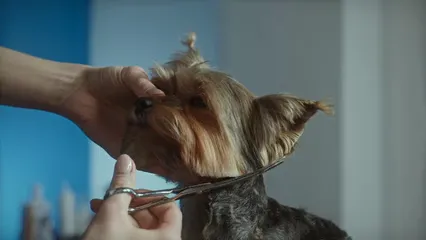
8. Canine Cognitive Disorder (Dog Dementia)
As dogs age, they can develop cognitive disorders similar to dementia in humans. Disrupted sleep-wake cycles can lead to restlessness and excessive panting at night.
Other signs include confusion, disorientation, and altered behavior. If you suspect your dog is experiencing cognitive decline, talk to your veterinarian about potential treatments or lifestyle adjustments to make their golden years more comfortable. For extra comfort, consider getting them a Furhaven Pet Dog Bed to help them feel cozy and at ease!
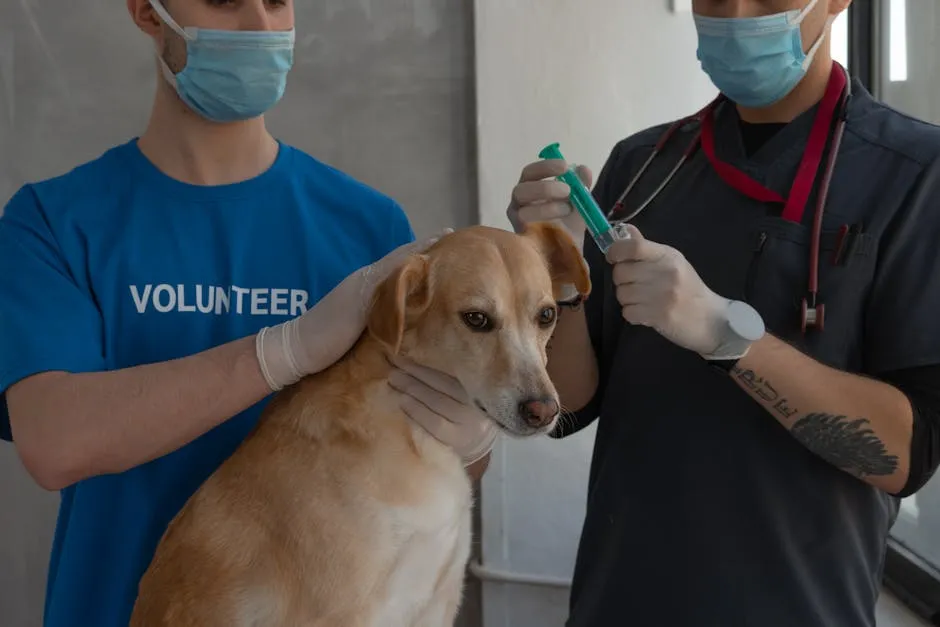
FAQs
Is it normal for dogs to pant at night?
Yes, it can be normal! Dogs often pant to cool down after exercise or when feeling excited. However, excessive panting at night, without an apparent reason, can be concerning. If your dog is panting heavily while resting, it may indicate a health issue or discomfort that needs addressing.
What should I do if my dog is panting heavily?
First, check your dog’s environment. Ensure they are cool and comfortable. Offer fresh water and observe their behavior. If the panting continues or is paired with distress, lethargy, or other concerning signs, consult your veterinarian. They will assess your dog’s health and guide you on the next steps.
Can nighttime panting be a sign of anxiety?
Absolutely! Dogs can experience anxiety from various triggers, such as loud noises, changes in routine, or separation from their owners. If your dog is panting at night and appears restless or agitated, anxiety might be the reason. Creating a calm environment, using soothing aids, or consulting a vet can help alleviate their distress.
How do I know if my dog is experiencing heatstroke?
Signs of heatstroke include heavy panting, drooling, weakness, and a rapid heart rate. If your dog’s tongue appears unusually dark or blue, that’s a red flag! If you suspect heatstroke, move your dog to a cooler area immediately, offer water, and seek veterinary help right away.
Are certain breeds more prone to nighttime panting?
Yes, some breeds are more susceptible to respiratory issues, particularly brachycephalic breeds like Pugs and Bulldogs. These dogs may struggle to breathe, especially in hot weather or stressful situations. Regular vet check-ups can help monitor their health and prevent complications.
What can I do to help my dog feel more comfortable at night?
Creating a cozy sleeping environment is essential! Ensure your dog has a cool, quiet space with comfortable bedding. Consider using a fan or air conditioning during warm nights. Calming aids, like anxiety wraps or soothing music, can also help your dog settle down for a peaceful night’s sleep.
Is there a way to prevent nighttime panting?
Preventing nighttime panting starts with understanding your dog’s needs. Keep their living environment cool, manage anxiety triggers, and ensure regular exercise during cooler parts of the day. Regular vet visits can identify and address any underlying health issues early on, contributing to a calmer, more comfortable dog.
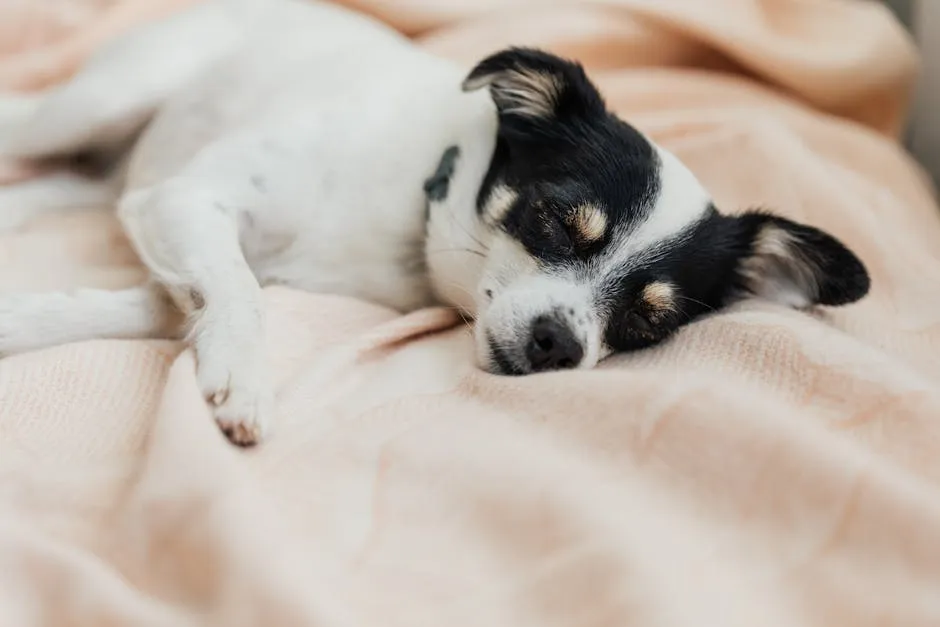
Conclusion
To wrap it up, panting is a natural behavior for dogs. It helps them cool down and regulate their body temperature. However, excessive nighttime panting can be a cause for concern. It might indicate underlying health issues that require attention. As a responsible pet owner, it’s crucial to recognize the signs and symptoms that warrant a vet visit.
If your dog is panting heavily at night, consider the context. Did they just finish a vigorous play session? Or perhaps the temperature in your home is a tad too warm? If the panting persists and there’s no clear reason, it’s time to investigate further. A PetSafe Easy Walk Dog Harness can help manage walks better!
Being proactive is key. Regular vet check-ups can help catch potential health problems early. If you notice your dog displaying unusual behaviors, such as restlessness or difficulty breathing, don’t hesitate to consult your veterinarian. Your furry friend relies on you to keep them safe and healthy!
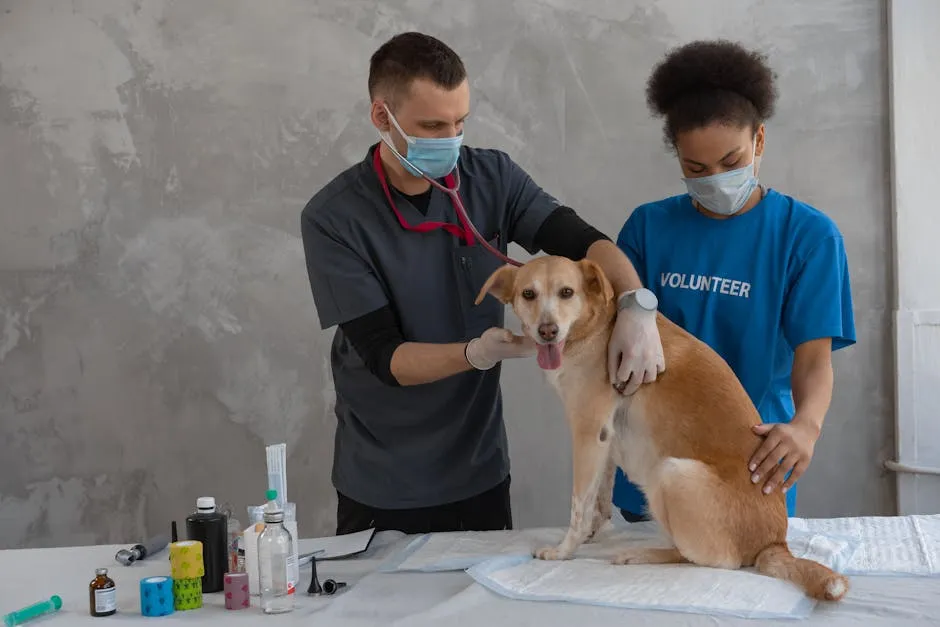
Remember, the goal is to ensure your pup enjoys restful nights and comfortable days. Keeping an eye on their habits and behaviors can make all the difference. Proper care and attention can lead to happier, healthier pets. And let’s be honest, a well-rested dog means a well-rested you! Don’t forget to stock up on Dog Treats Variety Pack to reward your pup for good behavior!
It’s important to understand the reasons behind dog panting at night to ensure your furry friend’s well-being.
Please let us know what you think about our content by leaving a comment down below!
Thank you for reading till here 🙂
All images from Pexels

